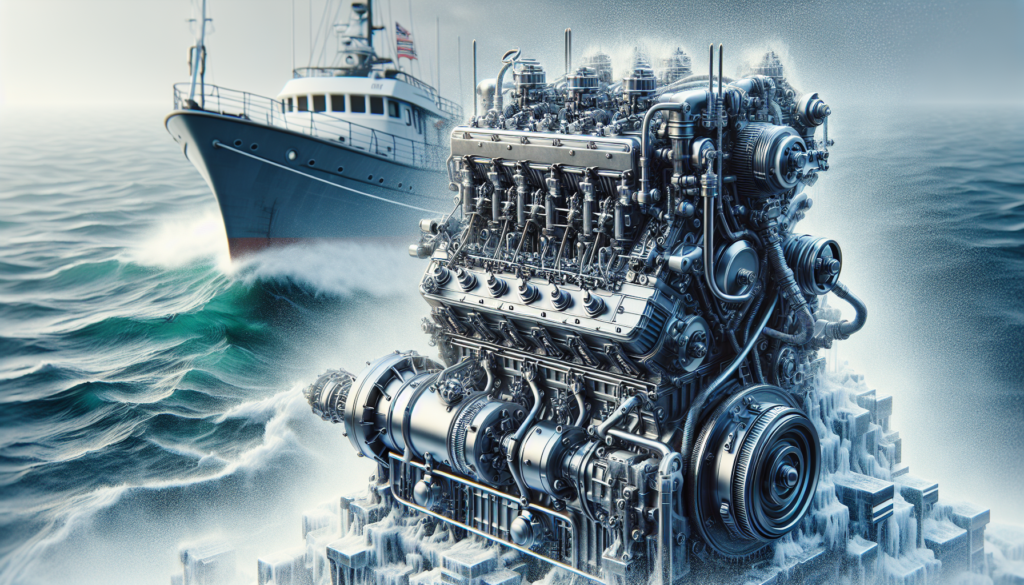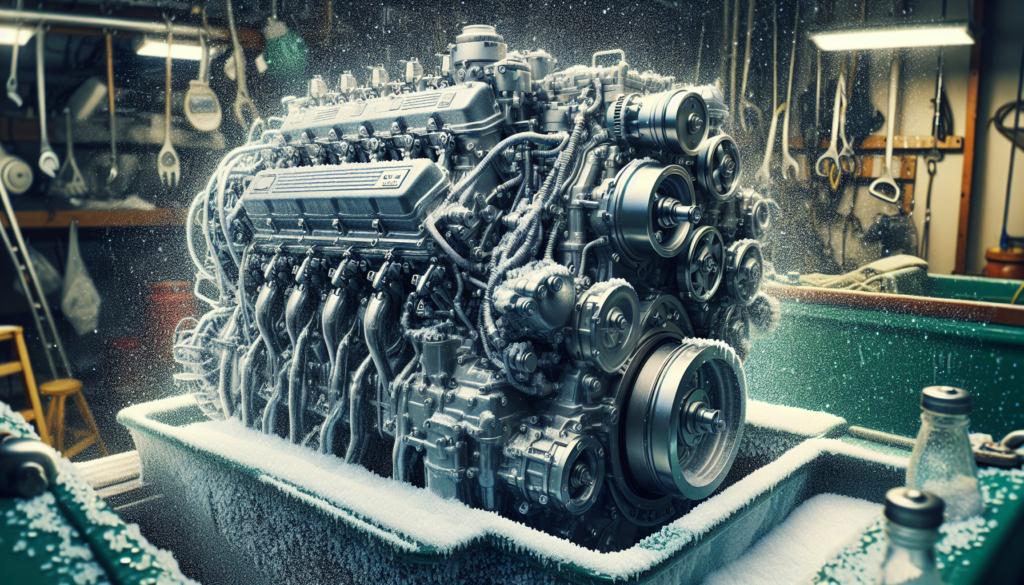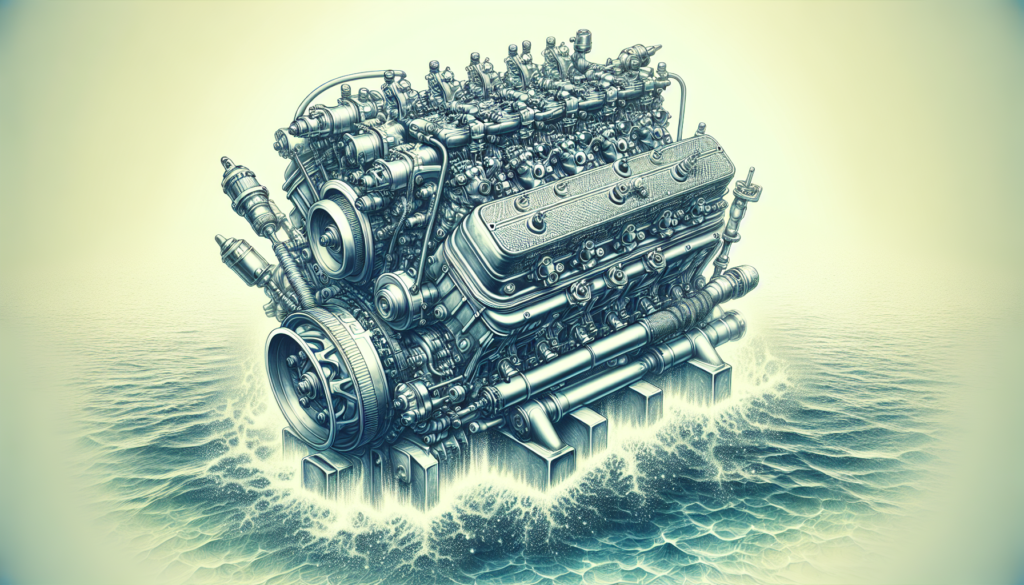Navigating the vast blue spectacle that is the ocean comes with its share of challenges, particularly if you are a boat owner. One critical aspect of ensuring you have smooth sailing is prioritizing the maintenance of your boat engine. This article is your lifeline, offering you comprehensive insights on the best boat engine upkeep practices specifically tailored for saltwater boating. It’s about empowering you to preserve your boat’s engine capacity, boost your maritime safety, and ensure enjoyable saltwater sailing experiences. Give your boat engine the care it deserves; it’s your dependable partner out on the saltwater waves.

Understanding Saltwater Impact on Boat Engines
In the world of boating, not all water is created equal. Saltwater, for example, can have harsh impacts on your boat’s engine. Understanding these impacts is essential to keeping your engine running smoothly.
Effects of saltwater on engine parts
Saltwater may be the perfect setting for a fun boating trip, but it’s not so friendly to your engine. The salt in the water can cause corrosion and rust on your engine’s components. Over time, this can lead to part failure and serious engine issues. Even components made of stainless steel or other materials designed to withstand corrosion can also suffer from eventual surface deterioration if not properly cared for.
Importance of timely maintenance and clean up
Just like with your car, regular maintenance is key to extending the life of your boat’s engine, especially when it’s exposed to saltwater regularly. The quicker you clean up after your trip, the less time salt has to do its corrosive work. Routine checks for any damage are also crucial. Timely servicing will save you from major repairs in the future.
Different types of engine damage from saltwater exposure
Saltwater exposure can lead to many different types of engine damage. It might cause coating degradation, surface pitting, or even crevice corrosion. Parts such as the cylinder liners, exhaust valves, and cooling water pump can take a significant beating from saltwater.
Choosing the Right Engine for Saltwater Boating
When you’re in the market for a new engine for your saltwater boat, you need to factor in your regular operating environment.
Key considerations when purchasing an engine for saltwater use
Shopping for a new engine can seem overwhelming with so many choices on the market. For saltwater boats, look for engines designed to withstand corrosion. Also consider the size of your boat and the engine’s horsepower (HP), the weight of the engine, your typical cruising speed, and the engine’s fuel efficiency.
Comparison of diesel and petrol engines
Diesel engines have historically been the go-to for larger boats, thanks to their efficiency at cruising speeds. Petrol engines, on the other hand, tend to offer better acceleration and are typically more affordable to buy. However, diesel engines could offer more durability and therefore may be a suitable choice for saltwater boating.
Popular models for saltwater boating
Some popular engine models for saltwater boating include the Yanmar 6LY3-ETP, the Mercury Verado Six Cylinder, and the Yamaha F350. Each has its strengths, so it’s important to match your engine choice to your boating habits.
Materials and Tools Required for Upkeep
Equipping yourself with the right tools and supplies for engine maintenance is crucial.
Cleaning supplies
Most cleaning supplies for boat engines focus on removing salt residue. A simple water and mild detergent solution may work, or you can opt for a commercial grade salt-removing cleaner. Always have a good scrub brush at hand.
Preservative oils and lubricants
Keep your engine well-lubed to ensure it runs smoothly and is protected from saltwater. Use grease on fittings, and occasionally spray a protective lubricant on the engine.
Essential tools for basic maintenance
Just like with your car, a basic set of tools is required for engine upkeep. This should include wrenches, pliers, screwdrivers, and a multimeter for electrical checks.
Personal protective equipment
Lastly, don’t forget about PPE (personal protective equipment). This means safety glasses, gloves, and appropriate clothing.
Routine Saltwater Engine Checks
Regularly checking your boat’s engine can help identify any issues before they become serious problems.
Inspecting the propeller and shaft
The propeller and shaft can predictably see significant wear and tear. Inspect them regularly, looking for any signs of damage or excessive wear, as these components directly affect your engine’s performance.
Checking and changing oil levels
Next, check your oil levels regularly, and change the oil according to the manufacturer’s guidelines. An engine with low or contaminated oil can quickly become an engine on the verge of a breakdown.
Examining fuel system
The fuel system is another area to check frequently. Look for leaking fuel and any signs of damage to the lines or tank.
Keeping an eye on belts and hoses
Just as with the belts and hoses in your car, your boat’s similar parts can crack or wear thin over time. Regularly inspect each of them for any signs of wear.
Checking the electrical system
Saltwater is a great conductive medium which isn’t good news for your electrical system. Regular checks for signs of corrosion or wear can help prevent electrical failure when you least expect it.

Regular Engine Cleaning
Keeping your engine clean can greatly extend its lifespan and performance.
Proper way to flush the engine
After every trip in saltwater, flush your engine to remove any salt or other contaminants. Most modern outboard engines come with a hose attachment to allow for easy flushing.
Frequency of needed rinsing and cleanings
If you’re a frequent boater, make rinsing and cleaning a regular part of your after-boating routine. Consider a deep clean at least every month, or after particularly prolonged exposure to saltwater.
Use of anti-corrosion sprays and solutions
Preventing corrosion before it starts is a great strategy. Use anti-corrosion sprays on the engine surfaces and components, especially if you are not using your boat for an extended period.
Cleaning the cooling system
The cooling system of your engine is crucial to its health. Routine cleanings can help ensure it’s functioning properly and efficiently.
Preventing and Treating Corrosion
Corrosion is an engine’s greatest enemy. Regular inspections and proper care can help combat it.
Identifying first signs of corrosion
Recognising corrosion early is vital as it starts as a minor surface blemish before it turns into a significant engine problem. Look for discoloration, flaking, and pitting on surfaces.
Using corrosion inhibitors
Corrosion inhibitors are chemical compounds that considerably slow corrosion. regular application can help protect exposed components of your engine.
Treatment and repair of corroded parts
If you do identify corrosion, take action promptly. Sometimes, a component may need to be replaced, but in many cases, an affected part can be treated and repaired.
Proper disposal of corroded parts
If you do need to replace a part due to corrosion, dispose of it properly. Hazardous waste guidelines apply to most engine parts.

Fuel Care for Engine Longevity
Fuel maintenance is another crucial part of engine care. Here are a few things to consider.
Understanding fuel grades and their impact
Like in all power engines, the grade of fuel you use matters. For marine engines, be certain to use the proper grade and avoid heavily alcohol-blended fuels that may lead to component damage.
Importance of fuel stabilizers
Fuel stabilizers help prevent fuel from breaking down when your boat is not in use. They can also help prevent corrosion in the tank and engine.
Keeping the fuel tank clean and water-free
Clean fuel is key! Regularly clean and inspect your fuel tank. If you find evidence of water or other contamination, address it promptly.
Changing fuel filters regularly
Regularly changing your boat engine’s fuel filters ensures that clean fuel is reaching your engine, boosting performance and extending the life of your engine.
Battery Maintenance
Battery maintenance is another necessary part of engine care. Poor battery care can leave you stranded.
Keeping the battery clean
A clean battery helps prevent corrosion and ensures a good connection. Regular cleaning can significantly impact your battery’s effectiveness.
Regularly checking the battery’s charge
Regularly test your battery to ensure it’s maintaining a proper charge. A failing battery can cause all sorts of engine problems.
Using marine-rated batteries for longevity
Boating requires batteries that can withstand the harsh marine environment. Only use marine-rated batteries and ensure they are sealed to avoid damage from the elements.
Storage and disposal of old batteries
When your battery reaches the end of its life, dispose of it properly. Handling old batteries improperly can lead to hazardous spills or other accidents.

Keeping the Engine Cool
Just like the cooling system in your car, your boat’s cooling system plays a key role in engine health and performance.
Understanding the cooling system
Getting to know your boat’s cooling system is one of the best ways to prevent overheating problems. Whether raw water or enclosed cooling, understand where water is drawn from, where it goes, and how it cools the engine.
Importance of coolant
If you have a closed cooling system, maintaining proper coolant levels is crucial. Check coolant levels often, and remember, only use marine-rated coolant.
Checking and maintaining the cooling system
Inspect the cooling system regularly for leaks, damage or blockages. Maintenance and repair should be done promptly to avoid overheating of your engine.
Signs of overheating and what to do
Overheating can end a fun day on the water in an instant. Knowing the signs of an overheating engine and what to do can save your engine from significant damage. Keep an eye on your temperature gauge and listen for any alarms. If there are suspicions of overheating, stop operation immediately and investigate.
Post-Trip Best Practices
After every trip, make sure to follow a few basic post-trip procedures.
Proper engine storage
If you’re done for the season, be sure to store your engine properly to avoid damage over the winter. This may include adding fuel stabilizer, flushing the engine thoroughly and applying anti-corrosion treatment.
Post-trip cleaning and check-up
After every trip, clean your engine and do a quick check-up for any sign of damage or concern. Prompt attention to any issues can help avoid major problems later.
Regular maintenance scheduling
Set a schedule for your routine maintenance. Sticking to a schedule helps prevent forgetting important maintenance tasks, which can lead to bigger issues down the road.
End-of-season care
At the end of the boating season, take special care of your engine. Drain all water, change the oil, check and replace the antifreeze if necessary, and ensure your engine is stored properly to weather the off-season. With the right knowledge and a little diligence, you can keep your boat’s engine running smoothly for years, even in harsh saltwater conditions. Remember, early detection is the key to stopping problems before they start, so always keep a keen eye on your engine and its components. Regular maintenance and proper care will ensure a long lifespan and optimal performance for your boat’s engine. Happy boating!


[…] and adhering to regular maintenance checks is crucial for boat engine upkeep. Make a habit of noting every inspection, oil change, or filter […]